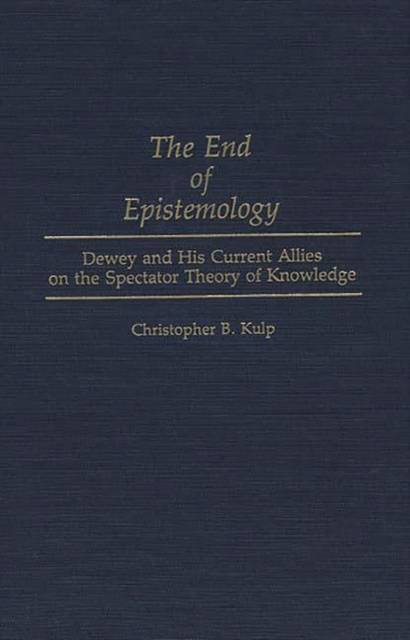
- Retrait gratuit dans votre magasin Club
- 7.000.000 titres dans notre catalogue
- Payer en toute sécurité
- Toujours un magasin près de chez vous
- Retrait gratuit dans votre magasin Club
- 7.000.000 titres dans notre catalogue
- Payer en toute sécurité
- Toujours un magasin près de chez vous
The End of Epistemology
Dewey and His Current Allies on the Spectator Theory of Knowledge
Christopher B Kulp
161,45 €
+ 322 points
Description
Kulp provides a thorough examination of John Dewey's influential arguments against traditional theories of knowledge; in particular against a traditional spectator theory of knowledge, the thesis that knowing is fundamentally a passive beholding relation between the knower and the object known.
Kulp presents Dewey's arguments with unusual clarity, but, ultimately, finds them deficient. He also lays the basis for a defense of a spectator theory of having knowledge, a basis that incorporates important considerations about introspective knowledge. American philosophers have recently revived their interest in Dewey's work. Such philosophers as well as students and scholars involved with the study of American thought and schools of philosophy will find Kulp's book extremely useful.Spécifications
Parties prenantes
- Auteur(s) :
- Editeur:
Contenu
- Nombre de pages :
- 224
- Langue:
- Anglais
- Collection :
Caractéristiques
- EAN:
- 9780313285363
- Date de parution :
- 10-12-92
- Format:
- Livre relié
- Format numérique:
- Genaaid
- Dimensions :
- 156 mm x 234 mm
- Poids :
- 489 g







